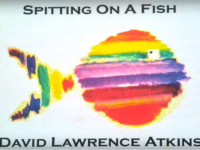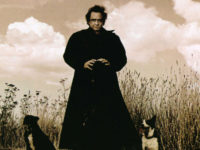“Montana Song” is the crowning achievement of an album that was once called the Sgt. Pepper of folk music. It’s a bombastic and wildly ambitious, but also deeply moving and poetic meditation on the passing of a way of life.
Nearly ten minutes in length, “Montana Song” is the longest and last track of David Ackles’ magnum opus American Gothic, a 1972 album that was praised by the critics but damned by disappointing sales. It starts with a majestic prelude of woodwind and strings, before an authoritative baritone declares: “I went out to Montana with a Bible on my arm, looking for my fathers on a long-abandoned farm.”
As the song unfolds with patient determination, we follow the story of a man who wanders across a forgotten town, searching for traces of his forefathers. He finds their grave and unravels the story of James and Leantha McKennon, who married in Montana in 1884, and tried to tame the land and raise their two sons religiously.
Yet the peaceful music, inspired by Aaron Copland’s Appalachian Spring, soon changes as a languorous jazz riff sets in and builds to an irreverent chaos of brassy exuberance. Life has moved to the cities, where the two sons of the McKennons are lost to God and heaven. Leantha and James are left behind to watch their sons’ shadows and their hoped-for future disappear in the distance.
“Montana Song” is about the tragic but heroic attempt to build a life on dreams, to mold the changing land to a deathless vision. Of course, it fails: change sets in and death proves that life is not made of dreams. Yet when the visions have passed away something is left behind, even if it’s no more than a fading grave in the windswept hills of Montana.
It’s a song not only about Leantha and James McKennon but also about America itself, a country that was tamed to fulfill the religious dreams of its founders. And written at the tail-end of the 1960s, it’s equally concerned with the hopes and visions of that heady decade. Superficially, they seemed so different from the religious dreams of the McKennons, but underneath they were made of the same high idealism and bound for a similar fate.
David Ackles once had the dream to write a full-scale musical about America, writing the music, lyrics and dialogue and playing the lead-role himself. On “Montana Song” he came eerily close to realizing his vision — in a single song.
- Why Warren Zevon Shouldn’t Only Be Remembered For a Novelty Single - September 7, 2023
- Thanksgiving Songs From Bob Dylan, Joan Baez + Others: Gimme Five - November 25, 2021
- Dory Previn, “The Lady With the Braid” (1971): One Track Mind - November 27, 2019




